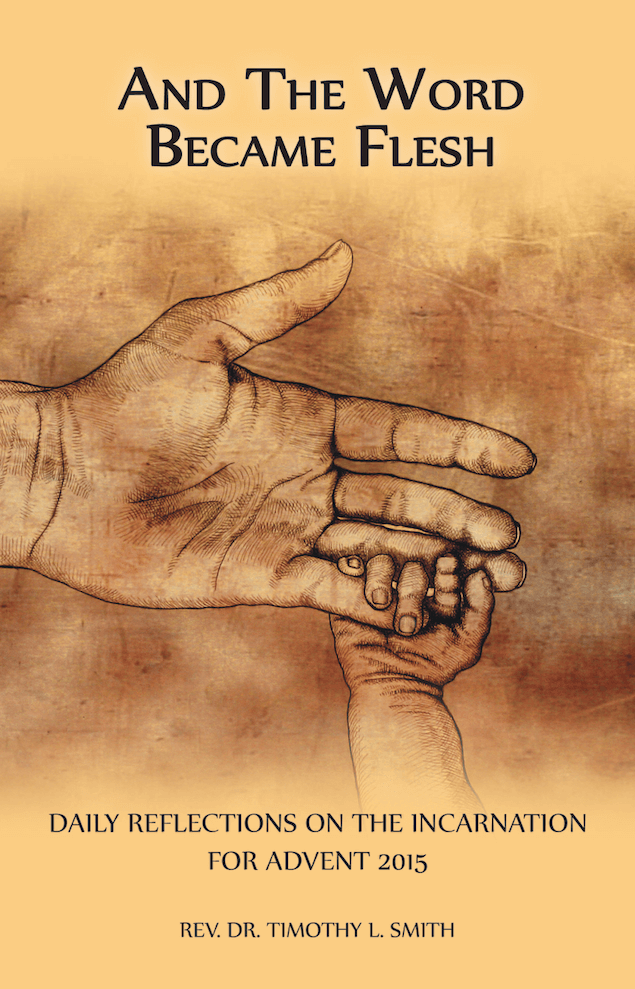The Third Sunday of Advent
It was fitting that God, for whom and through whom all things exist, in bringing many children to glory, should make the pioneer of their salvation perfect through sufferings. For the one who sanctifies and those who are sanctified all have one Father. For this reason Jesus is not ashamed to call them brothers and sisters.
Hebrews 2:10-11
I was the goofy little brother who often did and said things that would make any older brother or sister wince. In comparison Beaver Cleaver was one cool and sophisticated kid! I guess that’s why I am drawn to today’s Scripture telling us that Jesus so identifies with us, that He is “not ashamed” to call us His “brothers and sisters”. Jesus unblushingly, unashamedly claims us in “bringing many children to glory”.
Before Jesus can bring us into divine glory He must first make us “one” with Him. By His grace He makes us what He is by nature. Taking up the language of priestly consecration our text talks about Jesus sanctifying us, or, setting us apart as God’s holy people. Notice the perfect oneness between Him who sanctifies and those sanctified: Jesus “the one who sanctifies” – and you and me – “those who are sanctified”– “have one Father”. That makes us totally one with Christ.
Contemporary theologian C. Baxter Kruger aptly describes our complete oneness with Christ.
We were and are bound up in him and in what became of him. We were implicated in what happened to Jesus, so much so that our identity, our existence, or past, present, our relationship with God and with one another and with creation were all fundamentally ordered in this one man. (C. Baxter Kruger, Jesus and the Undoing of Adam)
Christ not only created us, but also became one flesh with us, to gather us up in Himself that He might cleanse and make us alive. We are to regard the whole of “our Lord’s incarnate life from his cradle to his grave in which as one of us and one with us, he shared all experiences, overcoming our disobedience through his obedience and sanctifying every stage of human life.” (Thomas Torrance, The Trinitarian Faith) God comes down and acts as one of us, all for our sakes. He offers up the perfect obedience that we are unable to offer. Taking to Himself the fallout of sin in His death and redeeming us from the power of sin in His resurrection, He is “bringing many children to glory”.
The Incarnation reveals essential truths about whom God is, but also essential truths about whom we are. It reveals our true humanity and how we are destined for glory. The Incarnation reveals God to us in the Man Christ Jesus, but also reveals in the Man Christ Jesus authentic humanity. The Word became flesh without being less God or less human. Many philosophies have painted God as a threat to human happiness and well-being. In their own ways Marx, Freud, Sartre, Hitchens, and Dawkins have boasted that if we can rid the world of God then we can be fully human.
But the Incarnation will have none of that! The Word became flesh without compromising the well-being and integrity of His humanness. The Word became flesh revealing that in Jesus we are destined for glory. God has great plans for us, so we must keep our eyes on the Pioneer of our salvation. Paul said it so well in his letter to the Colossian Christians: “When Christ who is your life is revealed, then you also will be revealed with him in glory” (Colossians 3:4). In that we are brothers and sisters of Jesus, we will share His glory!
PONDERINGS
- How might the Incarnation and God becoming human reveal something about our true humanity?
- What are some implications of Jesus calling you His brother or sister?
- What are some implications of your life being “one” with Christ?
EMBODIED PRAYER: LYING DOWN
We spend a lot of time lying down, which makes this posture of prayer a favorite of many. I do some of my best praying lying down between two and three in the morning. Like their contemporaries, Jesus and His disciples ate Passover lying down, symbolic of being free and no longer slaves in Egypt. Lying down embodies rest and peace, our lives secure in God. David wrote in the Psalms: “I will both lie down and sleep in peace: for you alone, O LORD, make me lie down in safety“ (Psalm 4:8). David liked to think of God while lying down and talking with Him: “My soul is satisfied as with a rich feast, and my mouth praises you with joyful lips when I think of you on my bed, and meditate on you in the watches of the night” (Psalm 63:5-6).
Lying down is symbolic of knowing ourselves cared for by God: “He makes me lie down in green pastures” (Psalm 23:2). When we are fretful and anxious, God wants us to lie down and experience our rest and safety in Him.
Today, and every day (and night) of the Second Week of Advent pray the Lord’s Prayer while lying down. As you pray let yourself go into God’s strong hands.



